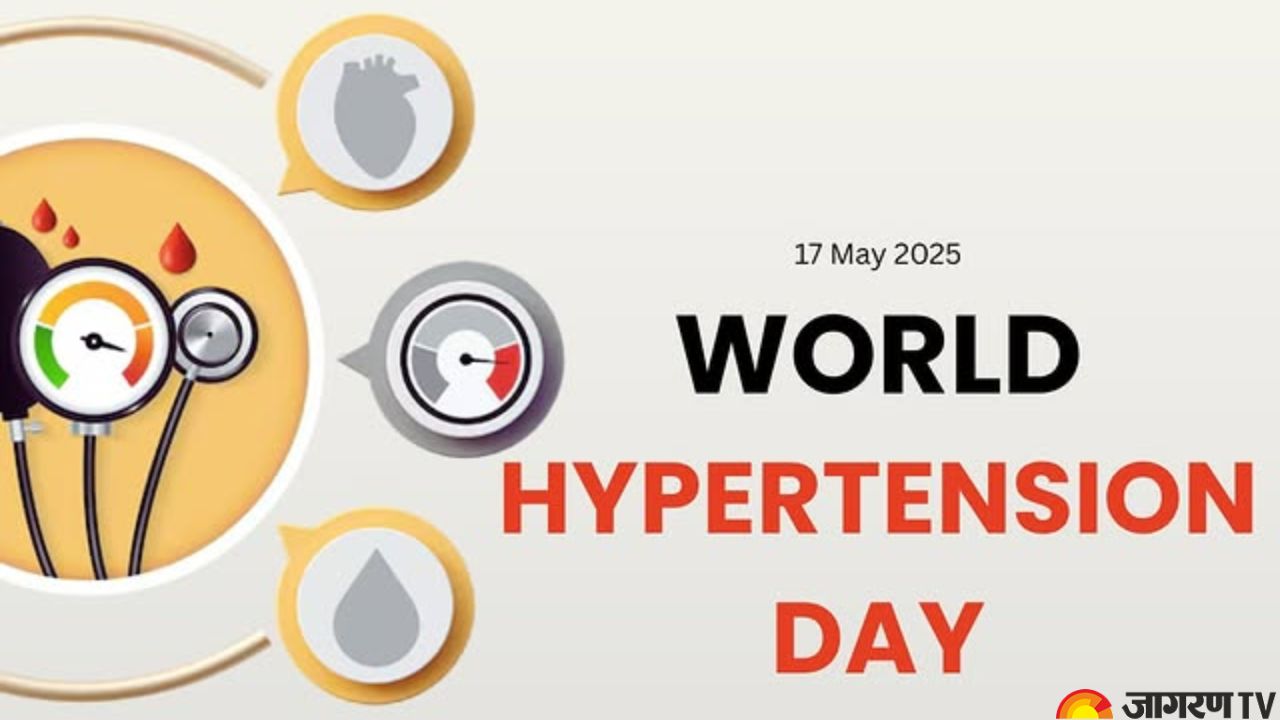World Hypertension Day 2025: Which Foods Can Increase The Risk of High Blood Pressure? Know Lifestyle Modifications and More

World Hypertension Day: Every year on May 17th, the world comes together to commemorate World Hypertension Day, an important initiative led by the World Hypertension League (WHL). This day provides an effective global platform for raising awareness of hypertension, also known as high blood pressure, its significant impact on health, and the necessity of prevention, identification, and control.
World Hypertension Day 2025 Theme
Hypertension is a major public health concern that affects more than a billion people globally. It often causes asymptomatic blood vessel damage and dramatically raises the risk of serious health issues such as heart attack, stroke, renal failure, and even early death. This year, the theme conveys a clear and motivating message: “Measure Your Blood Pressure Accurately, Control It, and Live Longer!”
World Hypertension Day History
The World Hypertension League founded World Hypertension Day in 2005 to address the growing global impact of high blood pressure. Recognizing that a large number of people with hypertension are ignorant of their disease, the WHL sought to break the silence surrounding this “silent killer.” Originally observed on May 14th, the date was later standardized to May 17th, cementing its status as an annual global health awareness event.
World Hypertension Day Significance
World Hypertension Day raises global awareness of the risks and effects of high blood pressure on general health.
-
The day emphasizes early identification of hypertension by encouraging frequent blood pressure checkups.
-
It strongly promotes the prevention of high blood pressure by emphasizing the importance of healthy living habits.
-
World Hypertension Day significantly improves hypertension management by stressing treatment adherence and lifestyle improvements.
-
The annual commemoration has a significant impact on public health policies by creating widespread awareness and encouraging the prioritizing of hypertension programs.
Foods to Avoid If You Have High BP
People with or at risk of high blood pressure should avoid certain foods or consume them in moderation.
-
Processed foods, canned soups, salty snacks (chips, pretzels), pickles, cured meats (bacon, sausages), and restaurant meals are generally high in sodium.
-
Fatty parts of meat, full-fat dairy products, fried foods, and many commercially baked pastries can all boost cholesterol levels and lower blood pressure.
-
Sodas, fruit juices with added sugar, and sweetened teas all contribute to weight gain and have a direct impact on blood pressure.
-
High alcohol consumption can elevate blood pressure and interact with blood pressure medicines.
-
While moderate caffeine use does not significantly influence blood pressure in most people, high consumption can cause a brief increase.
Lifestyle Modifications For High BP Patients
Adopting a healthy lifestyle is essential for controlling and avoiding hypertension. Key lifestyle changes include:
-
Aim for 150 minutes of moderate-intensity or 75 minutes of vigorous-intensity aerobic activity every week. Exercises like brisk walking, jogging, swimming, and cycling are beneficial.
-
If you are overweight or obese, losing even a small amount of weight can help lower your blood pressure.
-
Chronic stress can cause high blood pressure. Yoga, meditation, deep breathing techniques, and hobbies can all help you manage your stress.
-
Aim for 7-9 hours of good sleep per night. Poor sleep can impair blood pressure regulation.
-
Smoking harms blood arteries and dramatically raises the risk of high blood pressure and heart disease. Furthermore, if you prefer to consume alcohol, do so in moderation, as recommended by health guidelines.
-
Regularly measuring your blood pressure at home can provide useful information to your healthcare professional and help you manage your condition more successfully.









